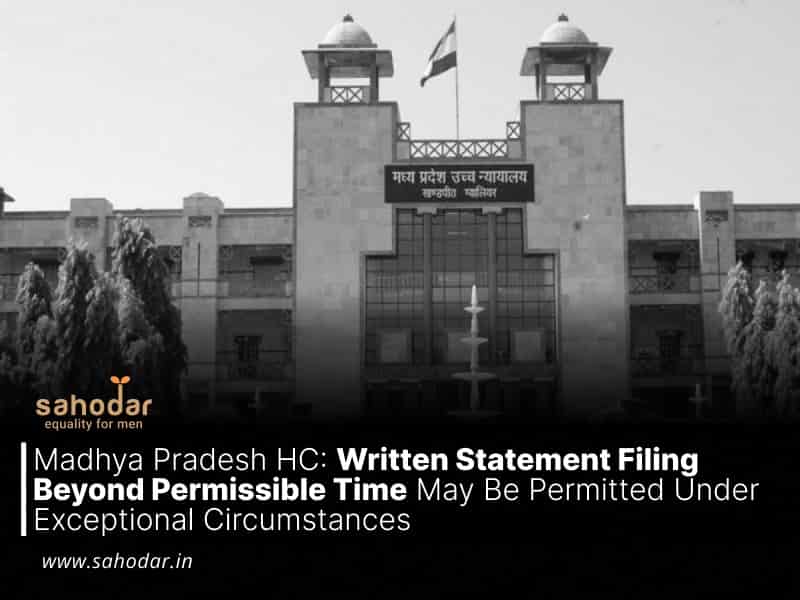The Madhya Pradesh High Court noted that under Order VIII Rule 1 CPC, the Court can permit the filing of a Written Statement beyond the permissible time if exceptional circumstances are established.
The Court was addressing a petition challenging the trial Court’s order that denied the petitioner the right to file a written statement.
Justice Duppala Venkata Ramana observed, “…it would be within the Court’s authority to allow the petitioners or defendants to file a written statement if exceptional circumstances are demonstrated.”
Brief Facts:
The plaintiff, M/s Sai Baba Collection, filed a suit to recover money. The trial Court ordered the respondent, Canara Bank, to notify the petitioners. The petitioners appeared, filed a Vakalatnama, received the necessary documents, and were instructed to submit a written statement. They requested additional time, which the Court granted. However, on the submission deadline, the petitioners neither appeared nor filed the statement, resulting in the Court closing their right to do so.
The Court mentioned the decision in Salem Advocate Bar Assn. v. Union of India and observed, “it has been held that the provisions including the proviso to Order VIII Rule 1 CPC are not mandatory but directory. It has been held in that decision that the delay can be condoned and the Written Statement can be accepted even after the expiry of 90 days from the date of service of summons in exceptionally hard cases. It has also been held in that decision that the use of the word “shall” in Order 8 Rule 1 CPC by itself is not conclusive to determine whether the provision is mandatory or directory. The use of the word “shall” is ordinarily indicative of mandatory nature of the provision but having regard to the decision in that case, the same can be construed as directory.”
The Court stated that the defendants should submit an application to condone the delay in filing the Written Statement. However, the Court indicated that it could not determine whether the petitioners had submitted any such application to condone the delay even after the period specified in the proviso to Order 8 Rule 1 CPC had expired.
Upon reviewing Order VIII Rule 1 CPC, the Court expressed its inability to conclude that the provisions under Order VIII Rule 1 are mandatory in nature.
The Court noted that in this case, the Written Statement could not be filed within the specified limitation period.
The Court observed that the delayed filing of the Written Statement was due to the non-receipt of a complete set of the plaint and other relevant documents well before the submission deadline.
Accordingly, the Court allowed the petition.

